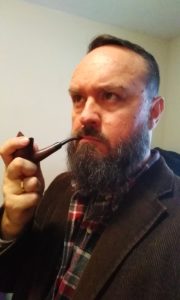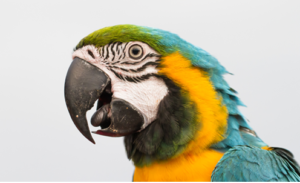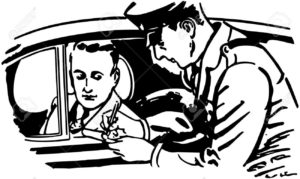Things
Profundity #2

There are rewards for finding missing persons…
but, I think there should be prizes for losing unpleasant people.
Profundity #1

Is the first day of business for a sandwich shop in the capital of India called “The New Delhi New Deli”?
“Vicarious”
Ellie wrings dirty water from the soaked rag into a plastic basin. Bulbous veins beneath her skin dance atop the bones in her hand. The bones shift like piano keys that play themselves but they make no music.
Music…Ellie has always loved it.
When she was 11, Ellie went to live with her aunt Josephine in the summer. Josephine has since passed. When Josephine, however, was in her prime, she had a “cozy” one-bedroom apartment. Inner city. “Cozy” is the word used when a person cannot obtain space for life. Mansions are never referred to as “cozy”, are they? Only the poor have “cozy” dwellings. Ellie grew to understand this as time went on.
Yet, the one-bedroom apartment really was a cozy home. Ellie savored it and every moment with Josephine. In the corner of the main living area was an upright piano. It took up a quarter of the room, was aged, tan, chipping in some places. But, all of the keys worked. Aunt Josephine taught Ellie how to play it.
“First,” said Aunt Josephine, “sit up straight. Posture is important. It prepares both mind and body to play confidently. Confidence is half the battle.” Ellie, always eager to do what was right and to fill the room with music, would listen intently and do her utmost to follow Josephine’s directives.
“Next, Ellie, you must….”
Ellie remembers Josephine’s piano lessons, abiding love, cozy apartment so distinctly – even as she wipes the tables at the diner today. The lessons were many years ago. So many lessons of a different nature have transpired since then.
The first song Ellie learned to play all the way through, and with great skill, was “Gymnopédie No. 1” by Erik Satie. She first heard the song when she was eight years old. It always transported her elsewhere – away from the city, from pain, from her flesh and blood. From ages eight to 11, the song preserved her sanity. It sheltered her in its wings. When she was finally able to play the song on her own, she felt reborn, like Phoenix rising from the ashes of her family name.
In the months and years after she went to live with Aunt Josephine, Ellie’s technical prowess and emotional acuity at playing piano flourished. Her ability transitioned from what Aunt Josephine thought quaint to being on the verge of impassioned virtuosity. Josephine looked into schools and universities that offered music scholarships to promising youth. Over time Aunt Josephine sifted the serious schools from the pilferers. Their lives had been polluted with pilferers – physical and psychological. Josephine arranged for Ellie to audition for scholarships with four schools in the upcoming Spring when Ellie would be 17.
Ellie wipes the table at the diner that is 12 blocks east of her shelter. The patrons of this neighborhood fixture are elderly widows and widowers, tourists who took a wrong turn, neighborhood transients seeking a free coffee, and the occasional celebrity who happens to be filming on location and wants to “taste the reality of the inner city” to prepare for a role. Ellie works three weekday swing shifts and every other Saturday morning until 2pm or so. When she is not working at the diner she helps with sundry duties at the shelter, visits with other forgotten humanity, looks at old, faded photos of Josephine.
One crisp autumn afternoon, when Ellie was 16, she had just finished buying groceries and was walking back to the cozy apartment. As she walked, she was listening to “Gymnopédies” in her mind, humming along, imagining playing the song so much so that she even slightly moved her fingers as she cradled her one grocery bag. She was transported to a place of freedom, plenty, beauty.
One block from home, Ellie crossed the street toward coziness. On the corner of the sidewalk upon which she had just set foot a man named Earl was selling candy, snacks, trinkets. He had started the stand last summer. Ellie was 100 feet from her apartment door. She heard a woman scream, “Stop, Henry! Stop!” Ellie turned to see a little boy running from the woman and toward the street, toward the man selling treats next to Ellie.
“Henry, stop!” the woman cried again. The boy was a complete stranger to Ellie. Yet, without hesitation, Ellie dropped her grocery bag, ran toward the boy and into the street to stop him. “Careful!” screamed Earl, running away from his stand toward Ellie. The music in Ellie’s head stopped.
When Ellie awoke in the hospital the next day, she was sore all over and felt a sharp pain on her right side. Her forehead itched and felt crusty. After a moment of being murkily conscious, she started to reach for her face. Her hand felt heavy, like a sack of flour. She tried to lift her other hand. It was heavy, too. She peered down the plane of her sore body and saw her hands interred in casts.
The end of Ellie’s shift is near. She unties and removes her worn apron, hangs it up. She dons her second-hand coat, stuffs the day’s tips in her right pocket, slightly winces at the pain in her hand. Years of pain.
After she buttons her coat, Ellie turns to the owner who is also the cook, “Goodbye!” The diner has been mostly empty all day. The cook sarcastically retorts,“You leavin’ already, sweetheart? We’re just getting warmed up around here!” Ellie dismissively waves him off. “Oh, silly, you know it’s at least 45 minutes on the bus on a good day for traffic. See you Monday, Earlie bird – I must get to Henry’s recital downtown.”
Parrots

Parrots are like ventriloquists without puppets.
Stop Light

I got pulled over the other day for running a red light.
It was a flashing red light; so I asked for 50% off the ticket.
Fashion
I can’t afford to be fashionably late,
so I just arrive scantily early.
